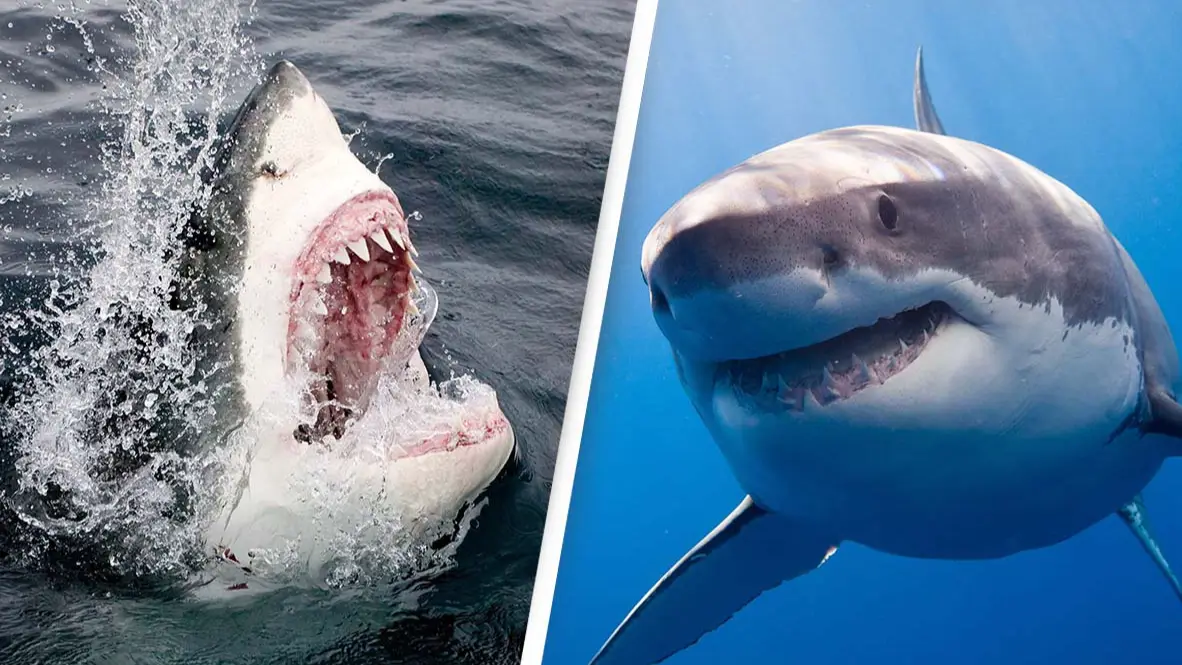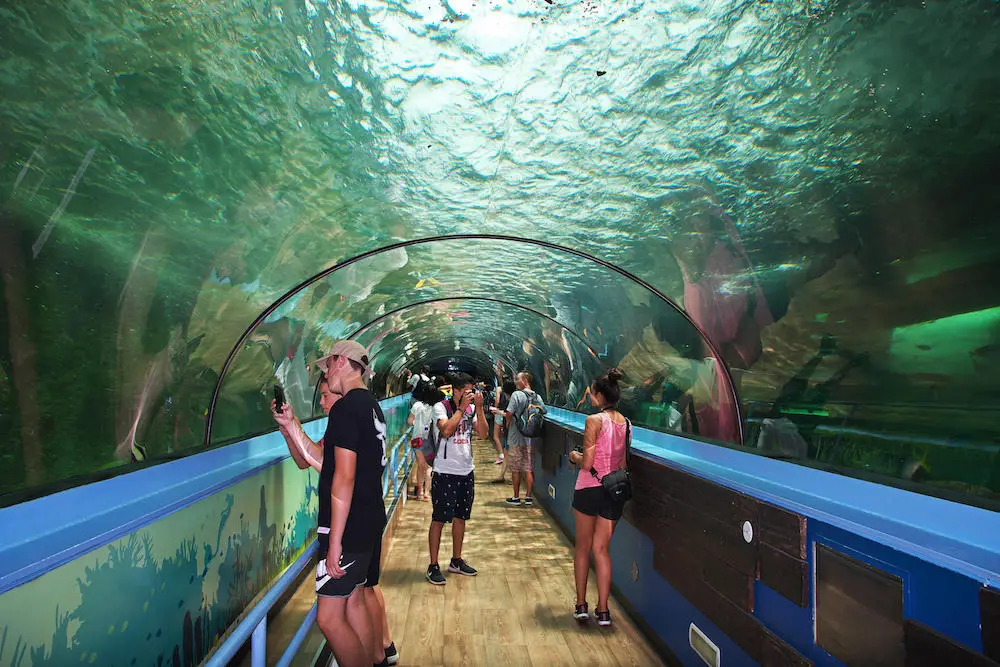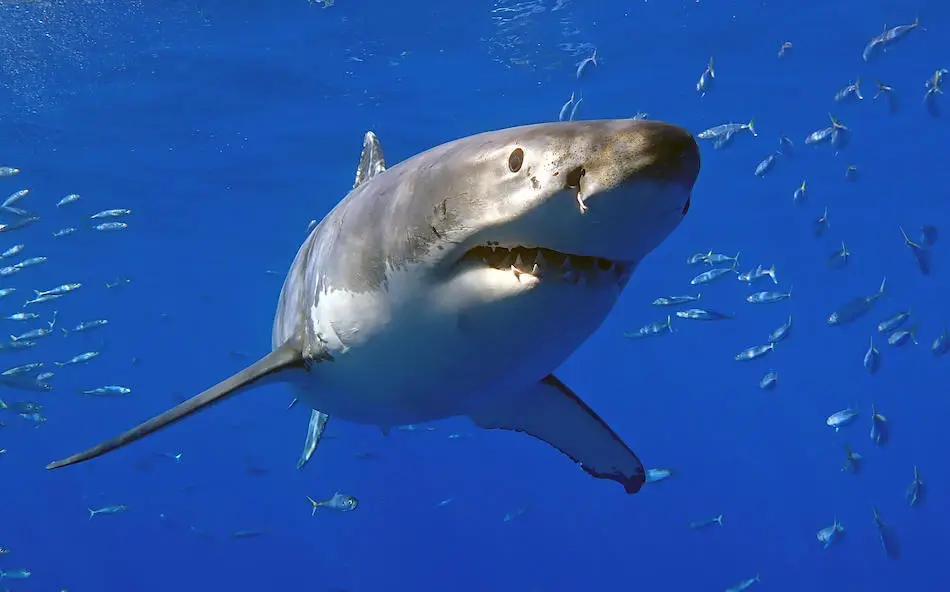
Did you know there's reason why you'll never see great white sharks being held captive in aquariums, and it's got nothing to do with traumatising kids – quite the contrary, in fact.
Thanks to the rise of numerous documentaries such as Blackfish and The Cove, more people than ever are against holding marine life in captivity.
But that doesn't mean there aren't plenty of aquariums and sea life attractions that remain popular across the globe.
That means animals such as dolphins and orcas are still kept in manmade habitats – so why not great white sharks?
Advert
They're likely to bring in the tourists, and they're the same size if not smaller than some of the other sea creatures on display.
Well, the short answer is really depressing: they always tend to die within days of being held captive.
The first recorded incident of a great white in captivity was in 1955 at Marineland of the Pacific, a former public oceanarium and tourist attraction in LA, but the shark didn't last one day.
Over the decades, a series of attempts were made but to no avail – the great whites were either released into the wild or died within days.
The longest record was held by The Monterey Bay Aquarium, which is known as the first to successfully care for and display great white sharks.
It is the only public aquarium in the world to have successfully exhibited a great white shark for longer than 16 days, but even that wasn't without its problems, with one young shark even dying shortly after being released into the wild.

So, what exactly is the problem here? Well, first up it's their feeding habits.
This particular species is carnivorous and they tend to only eat live prey including fish such as tuna, rays and other sharks and cetaceans such as dolphins, porpoises and whales.
They also like to snack on seals, sea turtles, otters and birds, among other animals.
In short, it's incredibly hard and expensive to satisfy the dietary needs of this species, then there's the issue of traumatising visitors by dropping live seals and dolphins into the feeding frenzy.
What's more, great whites are nomadic and huge, and you may also know that they cannot stop suddenly or swim backwards.
They need to movie forward in order to breathe, as vast amounts of water rushes through their open mouths and out of their gills.
Considering they can grow up to 6.1 metres in length, you're going to need a bigger tank than usual to house these creatures.
Once again, the costs of achieving this are going to be astronomical.
Last but definitely not least, great whites suffer in captivity, so much so that many of the recorded incidents led to the animals refusing to eat and dying of starvation.

According to Shark Bookings, which offers shark diving experiences in South Africa: "Great White Sharks that are kept within tanks have been known to head butt their noses into the glass walls and lose their appetites.
"It has also been noted that they get increasingly aggressive in their depressed state."
The company continued: "They refuse to be fed by humans, leading them to either die of starvation or be released into the wild.
"As predators, great white sharks are natural hunters and need the thrill of the hunt to survive – they will not survive on already dead small fish."
Although Jaws has left us with a less than favourable view of this species, they are important to our ecosystem and, as proven in the past, they definitely don't fair well being kept in tanks for our entertainment or education.
Topics: Animals